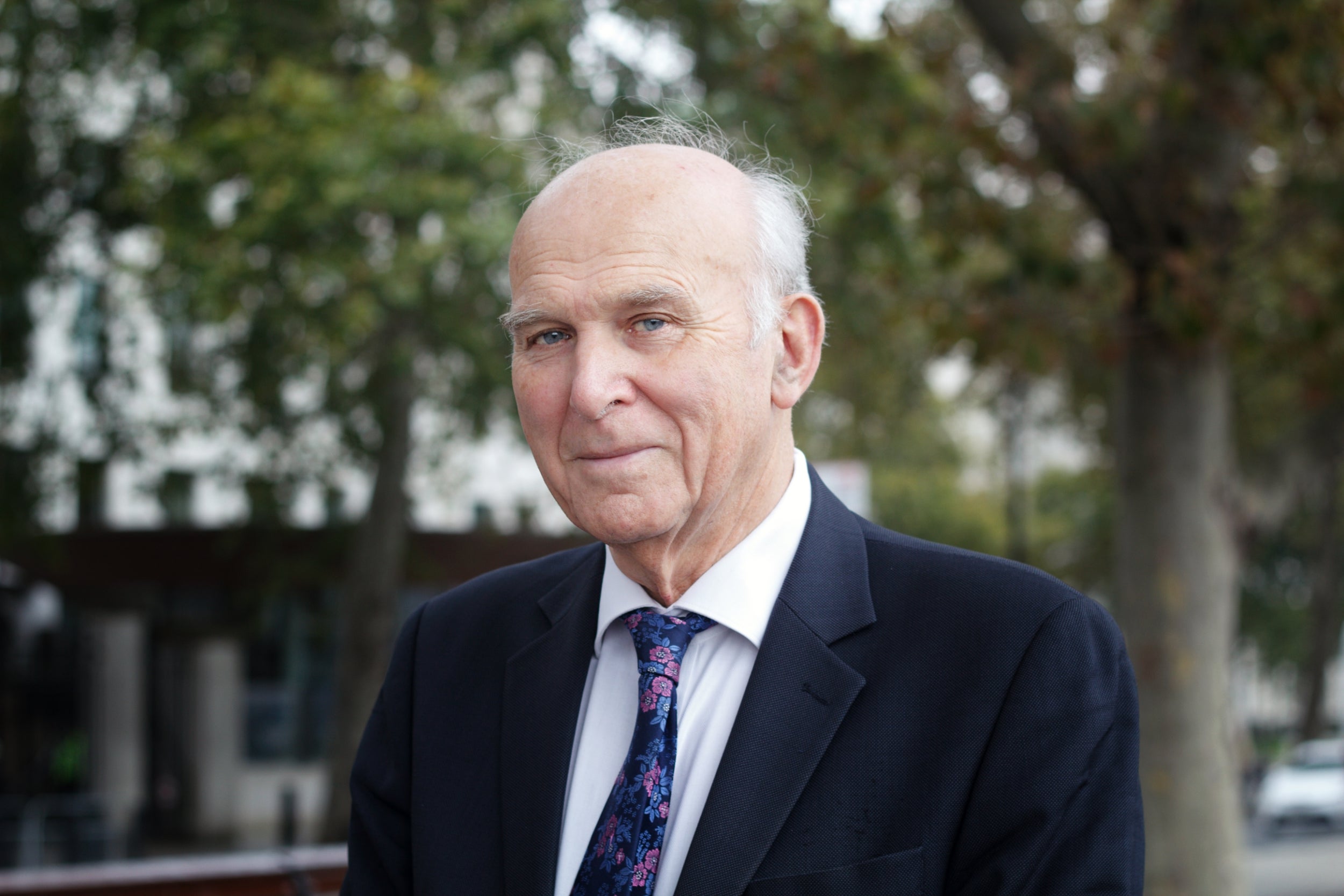Vince Cable: People should abandon ‘tribal loyalties’ and vote tactically to block Brexit, says ex-Lib Dem leader
Writing for The Independent, Sir Vince says the first December election for almost a century will be the last chance to stop Brexit

Your support helps us to tell the story
From reproductive rights to climate change to Big Tech, The Independent is on the ground when the story is developing. Whether it's investigating the financials of Elon Musk's pro-Trump PAC or producing our latest documentary, 'The A Word', which shines a light on the American women fighting for reproductive rights, we know how important it is to parse out the facts from the messaging.
At such a critical moment in US history, we need reporters on the ground. Your donation allows us to keep sending journalists to speak to both sides of the story.
The Independent is trusted by Americans across the entire political spectrum. And unlike many other quality news outlets, we choose not to lock Americans out of our reporting and analysis with paywalls. We believe quality journalism should be available to everyone, paid for by those who can afford it.
Your support makes all the difference.Voters should abandon “tribal loyalties” and cast their ballots tactically to block Brexit at the first December election for almost a century, former Liberal Democrat leader Sir Vince Cable has urged today.
In his regular column for The Independent, the ex-coalition cabinet minister has reluctantly suggested that in some constituencies it may be necessary for Lib Dem supporters to back a different party.
Preparing to contest his 11th general election, Sir Vince, who led his party between 2017 and 2019, said the upcoming vote will represent a “challenge for all of us in the political world” and the last chance to stop Brexit.
“I am very anxious to see my party fully recover from the depths of 2015 and 2017 and to build on our two successful elections – local and European – this year and make big gains at the expense of the two major parties,” Sir Vince wrote.
He added: “But I also want to save the country from Brexit. My ambition for the former will be tempered by the latter. Fortunately, these aims coincide in large parts of the country.
“But they do not yet do so everywhere. Remain vs Leave is the new dividing line in British politics, along with the issues of identity that lie behind it. Voters are smart enough to get what they want.”
While his successor Jo Swinson has discussed pro-Remain pacts in certain constituencies at the general election, she has not gone as far to suggest potential Lib Dem supporters should tactically vote Labour in any areas.
Despite having just 20 MPs, Ms Swinson has claimed to be running to become the next prime minister, and has insisted both Jeremy Corbyn and Boris Johnson are not fit to lead the country.
Sir Vince added: “Party leaders will, quite understandably, be appealing to tribal loyalties in the usual way: all three major party leaders are seeking a majority.”
His remarks come after the pro-EU Best for Britain group produced a new tool advising individuals how to vote tactically across constituencies in the UK in order to elect a Final Say supporter in each area to parliament.
Citing the research, the ex-Lib Dem leader claimed: “Without tactical voting, Johnson wins a clear majority in parliament to press ahead with his damaging ‘hard Brexit’.
“However, if 30 per cent of Labour, Lib Dems, Green and nationalist voters vote tactically in their constituencies, any majority for Johnson is wiped out and there is a majority for a people’s vote in the next parliament.”
Best for Britain’s research shows the Conservatives could emerge on 13 December with a 44-seat majority, with 346 MPs, compared with 189 for Labour and 23 for the Liberal Democrats.
If 30 per cent of British voters cast their ballot tactically it could swing the election to give pro-referendum parties a majority of four in the House of Commons, according to the seat-by-seat analysis of 46,000 people over September and October.
But the organisation was forced to defend its tool earlier this week after drawing criticism for advising voters to back the Lib Dems in some seats where the party trails behind Labour.
“The only person who benefits from this bogus advice is Boris Johnson and the vested interests he protects,” a Labour source told The Independent.
They added: “This false information makes Johnson’s sell-out Brexit deal more likely and its peddlers should be ashamed of themselves. A vote for the Lib Dems in almost every seat in the country helps put Johnson in Downing Street.”
But Best for Britain chief executive Naomi Smith said: “Our methodology is data driven. This data is from October 2019 and factored in responses from 46,000 Brits. There’s no organisation in the UK with such sophisticated seat-by-seat data.
“Criticism based on the 2017 general election, while understandable, is therefore outdated. As pollster Lewis Baston said, nearly a third of voters changed parties between 2015 and 2017. And it’s pretty well accepted that a lot has changed since then.”
Speaking on Saturday, as the election campaign entered its first weekend, Ms Swinson also acknowledged her party “didn’t get everything right” in its support of austerity during the Tory-Lib Dem coalition years.
“When it comes to having been in government, as Liberal Democrats we achieved significant successes – more money for the poorest pupils, taking people on low pay out of paying income tax and securing better rights such as same-sex marriage.
“We didn’t get everything right. I’ve been upfront about that and we need to learn from the things we didn’t get right. The bedroom tax would be an example of that. But I’m confident I’ve learned from experience.”
Join our commenting forum
Join thought-provoking conversations, follow other Independent readers and see their replies
Comments